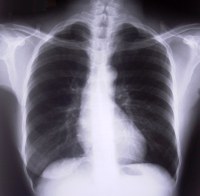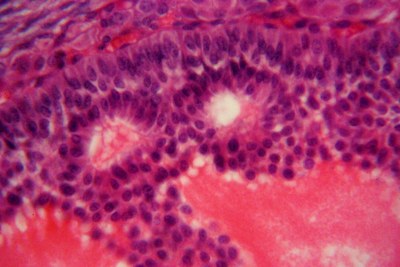Research Studies

A dyadic mindfulness intervention for college student roommates: effects on working memory, actigraphically-measured sleep, and fMRI results during an emotion task.
(Sephton, PI) University Of Louisville Office of the Vice President for Research
This study recruited 100 undergraduate students to participate in the 4-week Koru mindfulness intervention. Data were collected prior to the first session, each day during the 4-week intervention, and aft at conclusion of the last group, and at 4-month follow up. Reduction in depressive symptoms correlated with attendance and # gratitude items recorded, but not # minutes spent in practice. Remaining results are under analyses and will be disseminated soon.
Understanding the prognostic significance of the cortisol rhythm in lung cancer, and piloting an intervention.
The Kentucky Lung Cancer Research Board (Sephton, PI)
This study recruited 67 patients with non-small cell lung cancer, and conducted a 10-day examination of multiple circadian parameters. Blood samples were collected. Patients were then offered a 3-month mindfulness-based audio intervention on iPod. At the conclusion of the intervention, physiological data were again collected. Results are currently being analyzed.
The Role of Mindfulness in Predicting Perceived Stress, Health and Positive Adaptation in College Undergraduates
(Salmon, PI, Sephton, Co-I) University Of Louisville Office of the Vice President for Research
This study aims to examine how “trait” scores of mindfulness (i.e. relatively constant measures) may predict academic stress levels, measured both by self-report and salivary cortisol. Collected in 2007 and 2008 from 85 undergraduate students, data were gathered from participants at two intervals during a semester, using multiple measures of mindfulness, stress, health behavior and psychological well-being.

iPod-Based Coping Skills for Breast Cancer Patients
University Of Louisville Office of the Vice President for Research (Sephton, P.I.)
The efficacy of a mindfulness-based meditation intervention to improve coping efforts, reduce perceptions of distress, and improve circadian rhythms, endocrine, and immune function will be explored among female pre-surgical breast cancer patients. The intervention, which was created and recorded by Dr. Salmon, will be provided to participants via an iPod Nano during the surgical and adjuvant treatment phases, up to 6 months following their surgery. Funded by the University of Louisville Intramural Research Grants, Research Initiation Grant and the Undergraduate Research Grant as well as the Nancy R. Gelman Foundation Seed Grant.

Mindfulness-based Stress Reduction for Parkinson's Disease Patients and Caregivers
University Of Louisville Office of the Vice President for Research (Salmon PI, Sephton Co-I)
Working in collaboration with the University of Louisville Movement Disorder Clinic, we are conducting a pilot study of Mindfulness-based stress reduction (MBSR) on Parkinson’s patients and their primary caregivers. Variables examined in this study include immune function, salivary cortisol, psychophysiological functioning, disease-relevant movement and balance measures, and self-reported physical and psychological functioning.

Psychological and Biological Stress Pathways and the Role of Protective Factors in Individuals Impacted by Disaster
National Science Foundation (Sephton, Co-PI)
This quick response grant facilitated assessment of both psychological (Acute Stress Disorder and PTSD) and biological (diurnal salivary cortisol) stress responses immediately following disaster and at three-months post-disaster. Funds were utilized to study victims of the San Diego Firestorm of October 2007. We evaluated 1) impact of risk and protective factors on psychological and physiological stress responses, functional, developmental, and health outcomes, 2) associations between psychological distress and endocrine stress responses, and 3) effects of stress responses on functional, developmental and health outcomes.

Psychological Distress and Immune Disruption in Women Newly Diagnosed with Breast Cancer
Stanford Cancer Institute, Stanford University (Sephton Co-I with Firdaus Dhabhar PI)
Examines the associations of proinflammatory immune markers in the systemic circulation with distress and circadian disruption in a sample of newly diagnosed breast cancer patients, and examines the relationship between whole blood activation induced immunoprotective T helper (Th)-1 versus pro-inflammatory, anti-inflammatory, and Th-2 cytokine responses with distress and circadian disruption. (Funded by the Stanford Cancer Center Developmental Cancer Research Award in Translational Science).

Stress, Coping, and Sleep in Breast Cancer
(Sephton, PI) University Of Louisville Office of the Vice President for Research
The impact of psychological stress and coping mechanisms on measures of physiological stability (circadian endocrine and rest-activity rhythms) will be explored among women scheduled for breast cancer surgery (funded by the University of Louisville Intramural Research Grants, Research on Women).

Psychosocial Effects in Lung Cancer Outcomes
Kentucky Lung Cancer Research Program (Sephton, PI)
This project characterized in a group of 56 lung cancer patients the relationships of psychological stress, well being, coping resources and support with disease outcomes (quality of life, functional status, and survival) and potential endocrine and immune mediators of these effects (funded by the Kentucky Lung Cancer Research Board).

Stress and Circadian Disruption in Chemoresistance
(Sephton, PI) University of Louisville School of Medicine
This study will examine effects of psychological distress and disruption of endocrine and sleep-wake rhythms on tumor response to chemotherapy in 30 stage II-III breast cancer patients (funded by a James Graham Brown Cancer Center Pilot Project Grant).

Photo Credit: Kriss Szkurlatowski;12frames.eu
Effects of Stress in Ovarian Cancer Outcomes
(Sephton, PI) University Of Louisville Office of the Vice President for Research
This study examines the impact of life events and psychological distress on several physiological indicators of stress referred to as allostatic load, on medical outcomes and quality of life in women with endometrial and ovarian cancer.

Effects of a Meditation Program on Disease Symptoms in Women with Fibromyalgia
University Of Louisville Office of the Vice President for Research (Sephton, PI)
This randomized prospective trial assessed the effects of a meditation based stress-reduction (MBSR) intervention on illness symptoms, cognitive function, sleep, neuroendocrine function and evoked potential brain responses in women with fibromyalgia. (funded by a University of Louisville Intramural Research Incentive Grants for Research on Women).

Vascular Endothelial Function: Assessment and Modification
(Olive, PI; Salmon Co-I; Sephton, Co-I)
The purpose of this study is to assess patterns of blood vessel health (vascular endothelial function) and hormone responses to stress and anxiety, and to determine effects of a stress-reduction program including yoga and meditation has a beneficial effects on persons who are either at risk or have known cardiovascular disease (funded by a University of Louisville Intramural Research Grants, Multidisciplinary Research Grant).
